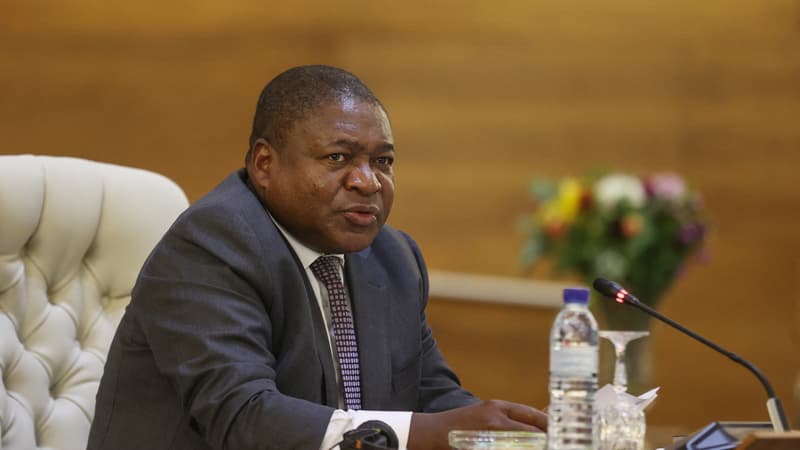The first shipment of liquefied natural gas (LNG) produced in Mozambique has been exported. This was announced on Saturday by President Filipe Nyusi, in the context of the energy crisis in Europe caused by the Russian war in Ukraine.
The first shipment of gas was produced at the Coral Sul offshore plant, managed by the Italian group Eni, added the Head of State, celebrating that his country thus entered “in the annals of world history.”
This is the first export under a long-term purchase and sale contract with British giant BP, covering the entire volumes of LNG produced in the southern African country, President Nuysi said. According to him, the country offers “a stable, transparent, and predictable environment for making multi-billion-dollar investments.”
The first floating liquefied natural gas facility deployed in deep water off the coast of Africa, the Coral Sur liquefaction unit can produce 3.4 million tons of LNG per year.
“Europe’s Energy Security”
Eni’s executive director, Claudio Descalzi, hailed an “important step forward” in the company’s strategy to make gas a source “that can contribute significantly to Europe’s energy security, in particular through the increasing diversification of supplies”.
Following the invasion of Ukraine, Russia drastically reduced its gas supplies to Europe. Many states compete for access to liquefied natural gas. But this gas is much more expensive to import than the gas that came through the pipelines between Russia and Europe. Mozambique has high hopes for large natural gas deposits, the largest ever discovered south of the Sahara, which were discovered in the northern province of Cabo Delgado in 2010.
Once tapped, these deposits could make Mozambique one of the world’s top ten exporters.
jihadist attacks
But the impoverished, Muslim-majority province of Cabo Delgado is plagued by attacks by jihadist fighters affiliated with the Islamic State group that have killed nearly 4,000 people since October 2017, according to the NGO Acled, which collects data on conflict zones. The violence also caused the flight of 820,000 people.
A major attack in 2021 in the coastal city of Palma forced the French giant TotalEnergies to suspend its €16.5 billion gas project. A project of the American ExxonMobil is also suspended.
Since July, Rwanda and neighboring southern African countries have deployed more than 3,100 soldiers in support of the struggling Mozambican army. The entrenched jihadist groups in the territory, however, continued to carry out sporadic attacks, adopting a more classic guerrilla tactic.
In September, the Mozambican president considered it “relevant” to anticipate the resumption of activity at future natural gas production sites in the north of the country.
The country went through a long civil war that lasted fifteen years after the departure of the Portuguese settler in 1975 and caused almost a million deaths. Following a peace agreement in 1992, the rebellion had become a political party. In 2013, the rebels took up arms again, until a new agreement was reached in 2019.
Source: BFM TV


